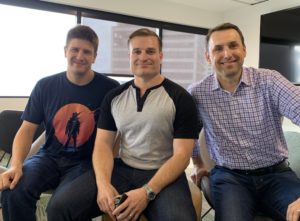Wow I just listened to this episode with Mikaela Kiner, the founder of Reverb and the author of the new book, Female Firebrands and it’s wide ranging and inspiring. We hear the story of how Mikaela left her corporate career to strike out on her own and ended up building a company to help thoughtful leaders build the kind of culture that sustains a company.
While D&I topics are scattered throughout here, the conversation makes them real and not buzzwords. “Culture” is the new “HR” and the conversation with Shannon Anderson, our director of Talent, and Mikaela gets into why human resources, people management, human capital – whatever you call it, is a crucial ingredient to building a company that people want to work for and that succeeds.
Great stories in here from companies like TomboyX and Heptio as well as stories and call outs from Female Firebrands, including a stunning story from Dr. Cheryl Ingram, CEO of Diverse City and Inclusology.
This one goes a little longer than most but it’s worth it!
K
